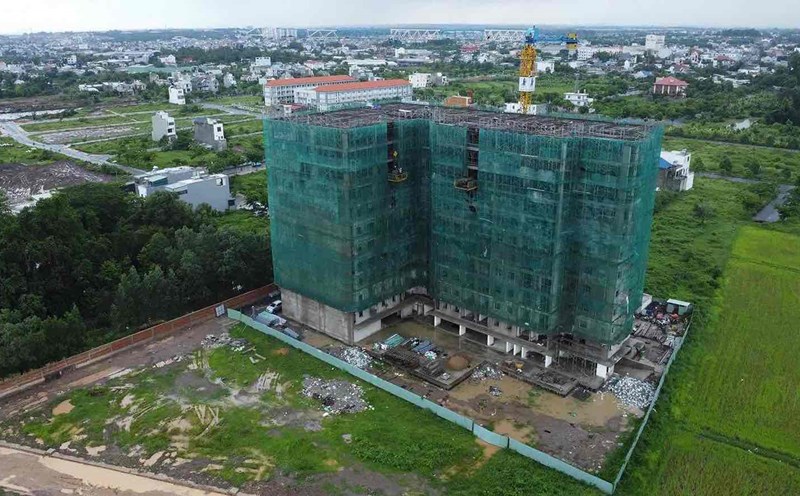The Resolution has removed two major bottlenecks that are currently hindering social housing development, including: Complex administrative procedures when implementing projects, and lack of capital for social housing development. Therefore, the Resolution is expected to become an important "push", creating momentum for this segment and we will soon achieve the goal of building 1 million social housing units by 2030.
Procedures for selecting investors and implementing social housing projects are simplified to the maximum
According to the Housing Law 2023, there are two mechanisms for selecting social housing investors: (i) bidding and (ii) approving investment policies at the same time as approving investors. However, the implementation of these two mechanisms is not currently significantly different from commercial housing projects.
Article 5 of the Resolution allows the Provincial People's Committee to approve the investment policy and at the same time assign investors, without having to organize bidding, helping to shorten about 300 days in the investment preparation process.
At the same time, the Resolution also cuts and integrates a number of administrative procedures (Articles 6 and 7). These include: No need to establish, appraise, or approve detailed planning tasks 1/500; No need to appraise basic designs at specialized construction agencies; Fire prevention and fighting design appraisal is integrated into construction permit issuance procedures; In case of using sample or typical designs, construction permits are exempted.
Normally, legal procedures for a social housing project can last from 20 to 24 months. The above reforms will help shorten time, reduce costs and create significant convenience for businesses.
Regarding determining the selling price and rental price of social housing, the investor must previously conduct two appraisals at the professional agency of the provincial People's Committee: when opening for sale and when finalizing the project. Now, the Resolution allows investors to determine their own selling/lease prices through consulting units, and only need to send them to the Provincial People's Committee for one-time inspection after settlement.
This approach is consistent with the policy of shifting from "anceance" to "post-inspection", increasing proactiveness for businesses, while still ensuring close supervision - demonstrating the spirit of reform in Resolution No. 68-NQ/TW dated May 4, 2025 of the Politburo on private economic development.
Establishing a National Housing Fund - creating sustainable financial resources
Article 4 of the Resolution stipulates the establishment of a national housing fund at the central level (established by the Government) and a local housing fund (established by the Provincial People's Committee). This is a non-budgetary State financial fund, formed from many sources: State budget, public asset sales, land use rights auctions and other legal sources.
The fund's capital will be used to: Invest in the construction of social housing; Construction of technical infrastructure and social infrastructure to serve projects; Only support social housing rental (no purchase or hire-purchase support), to ensure sustainability and focus on the truly disadvantaged group.
To overcome that problem, Article 11 of the Resolution allows the Provincial People's Committee to use budget capital to compensate, support resettlement, create clean land funds, and invest in infrastructure outside the project boundary. This is a breakthrough in implementing independent social housing projects.
Reasonable adjustment of beneficiaries of social housing policies
Article 10 of the Resolution significantly expands the scope of subjects eligible to rent social housing. In addition to the scope of industrial parks as currently regulated, the following organizations are also allowed to rent social housing to arrange for employees: Enterprises, cooperatives, cooperative unions; State agencies, political organizations, socio-political organizations, public service units; Including foreign workers and laborers. This policy helps organizations, especially businesses, proactively take care of accommodation for workers, thereby stabilizing production and improving business efficiency.












